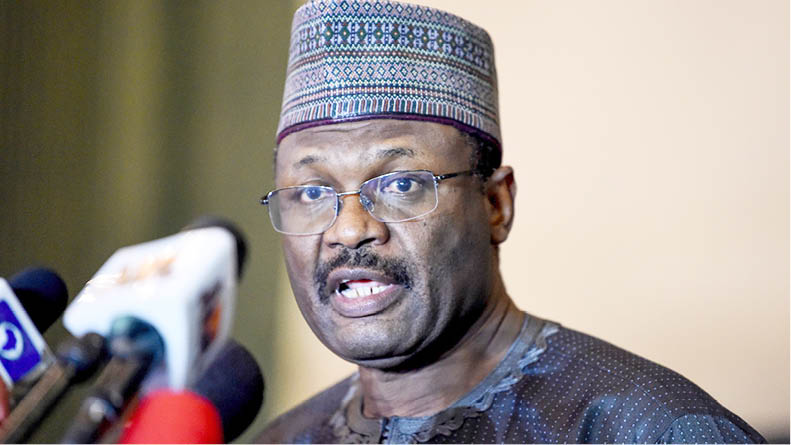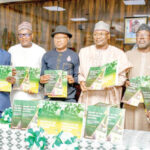The ongoing nationwide Continuous Voter Registration (CVR) exercise ends today. This is coming after the Independent National Electoral Commission (INEC) extended the period of registration beyond June 30, 2022 by one month. The Socio-Economic Rights and Accountability Project (SERAP) had, before the initial deadline, filed a suit at the Federal High Court in Abuja, seeking an extension of the exercise beyond June 30, 2022.
It would be recalled that INEC, even before the court verdict on SERAP’s suit, had, in compliance with the interim injunction of the court pending the determination of the substantive suit, continued with the CVR beyond June 30 in order to enable more Nigerians register.
- How I managed UniPetrol – Alhaji Yusuf Garba Ali
- How pregnancy, breastfeeding and motherhood affect Nigerian media mothers
In its judgement of Wednesday July 13, 2022, the Federal High Court dismissed the suit filed by SERAP. Reacting to the court judgement, the national commissioner and chairman, Information and Voter Education Committee of INEC, Festus Okoye, said the court affirmed that “INEC is at liberty to appoint a date of its choice to suspend the CVR, as long as it is not later than 90 days before the date fixed for the general elections as provided in section 9(6) of the Electoral Act 2022.” The CVR was accordingly extended until today July 31, 2022. This brings the total duration of the extension to 31 days.
To enable more Nigerians to register, Okoye said the time for the exercise was extended by two hours, to 5,00pm daily, while Saturdays and Sundays were also included.
Appreciating how tight the additional timeframe could be for many prospective registrants, Okoye noted the huge task ahead of the commission before the 2023 general elections, including cleaning up the register to remove multiple registrants using the Automated Biometric Identification System (ABIS); consolidating the national register of voters (existing voters and new registrants) and displaying same on polling unit basis for each of the 8,809 registration areas (wards) across the 774 local government areas nationwide for public scrutiny.
Media reports, particularly in the past few days preceding today’s deadline, suggest that many potential voters are yet to be registered. Registration centres in many states of the federation were besieged daily by thousands of citizens, who were seen at registration venues as early as 6.00am in a last-minute rush to beat the CVR deadline.
This newspaper reported last week that some community leaders mobilised vehicles to convey people from villages to registration venues.
Panicked by the huge number of eligible but unregistered voters, most of whom are youths, some state governments, including Kaduna, last week declared public holidays to enable workers who had not registered to do so. Prospective voters spend days on queues to get registered.
Political awakening through mobilisation is a plausible reason for the recent upsurge in youths’ participation in the CVR exercise.
Commenting on the surge of prospective voters at registration centres, the Commissioner for Information in Kano State, Malam Muhammad Garba, said the state government did a lot of grassroots mobilisation to sensitise its residents to participate in the ongoing exercise, noting that “the huge number of people at the INEC offices across the state to be captured was a testament to the high-level mobilisation drive embarked upon by the state.” Yet, this seeming surge is only relative when compared with figures of registered voters in southern states.
Based on the latest figures analysed by Daily Trust, the number of eligible voters registered in northern states is, within the context of the region’s population, smaller than the figures of registered voters in southern states, a situation some observers attribute to insecurity and disenchantment by the voting population. According to INEC in its CVR update as at Monday July 25, Lagos leads other states with 508,936 registrants followed by Kano, Delta, Rivers, Kaduna and Bayelsa states.
Experts opine that the relative low turnout of prospective voters, especially in the North, is an obvious consequence of insecurity and failure of governance. Heightened kidnappings and incessant bandits’ attacks in many northern states have displaced a large population from their homes. Besides, insecurity is the disenchantment factor. The chairman, Transition Monitoring Group (TMG) and executive director, Civil Society Legislative Advocacy Centre (CISLAC), Auwal Musa Rafsanjani, said northerners felt greatly disappointed with the federal government, which many believe had failed to meet the high expectations raised in the buildup to the 2015 elections. A third possibility is the impression created by INEC earlier in the year that the voter registration exercise would proceed until close to the 2023 election.
For these reasons, Daily Trust believes that more time is needed to allow more Nigerians register, as this can only be good for our democracy. First, it is important to sustain and improve upon the recent momentum in the mobilisation of voters to get registered. For example, during his commendable visit to registration centres last week, many prospective registrants in Kano told the INEC chairman, Professor Mahmood Yakubu, of the need to extend the deadline to allow more Nigerians to register. This is by itself an indication of active engagement in the electoral process by citizens, which can only help to improve the declining voter apathy during elections. It is no help if the INEC designs elaborate schemes at improving the integrity of Nigerian elections if only an underwhelming number of the citizens will turn out to vote.
Also, several state governments may want to follow the example of Kaduna and other states in declaring public holidays, specifically to mobilise voters to register. But with the window closing today, this possibility of voter mobilisation in the electoral process will now be shut. We, therefore, call on the INEC to allow more time to enable more Nigerians obtain their PVCs to participate in the 2023 general elections. The extension shall not contravene any existing provision of the Electoral Act, 2022. The cost of ending the CVR now to meet up with other timelines is less than the cost of disenfranchising eligible voters, whose votes should count in deciding the next crop of leaders for the country.
We also call on state governments, political parties, community leaders and civil society organisations to do more in sensitising prospective voters to take advantage of the extension when granted by the INEC. Elections are all about voters.

 Join Daily Trust WhatsApp Community For Quick Access To News and Happenings Around You.
Join Daily Trust WhatsApp Community For Quick Access To News and Happenings Around You.


